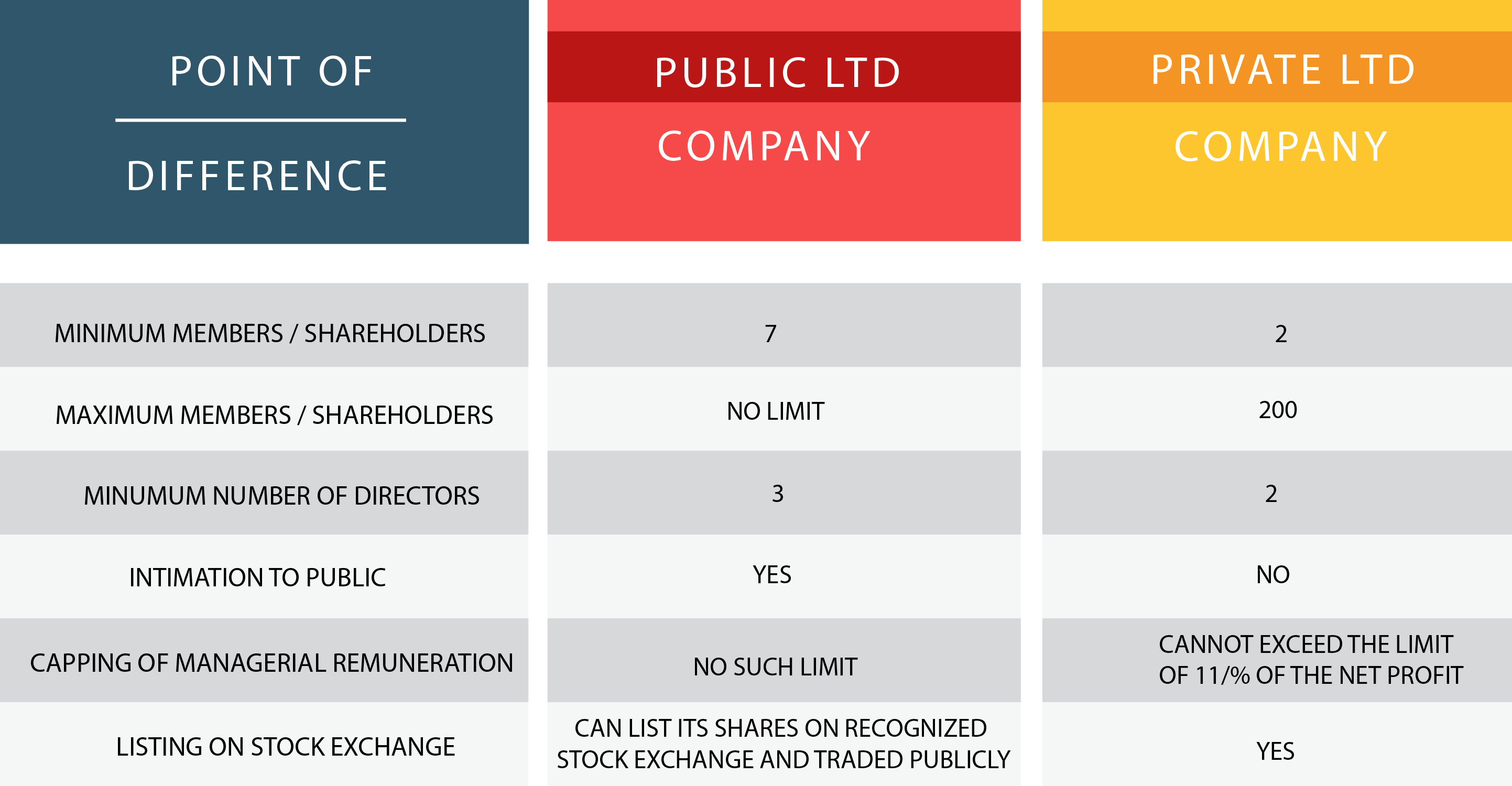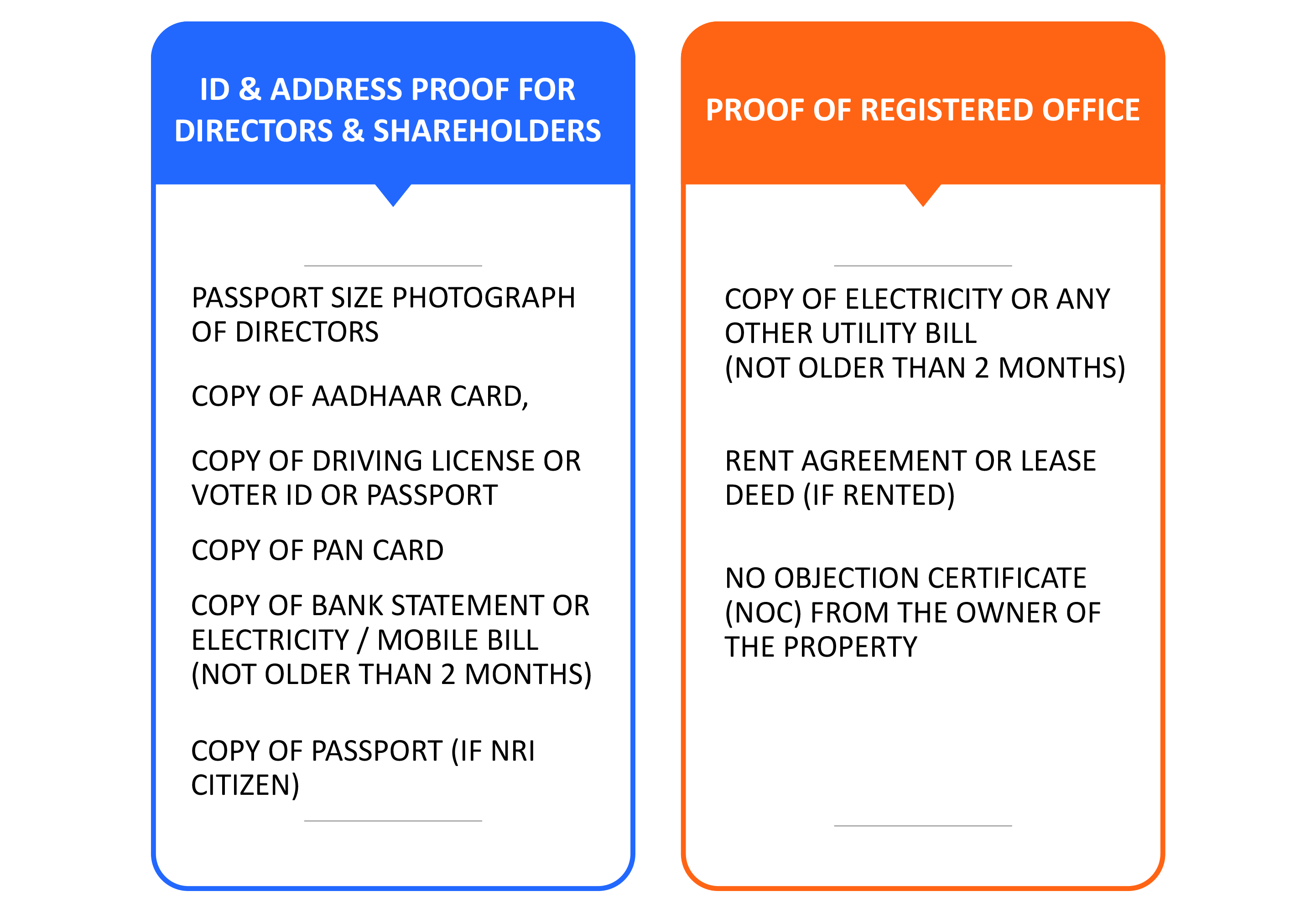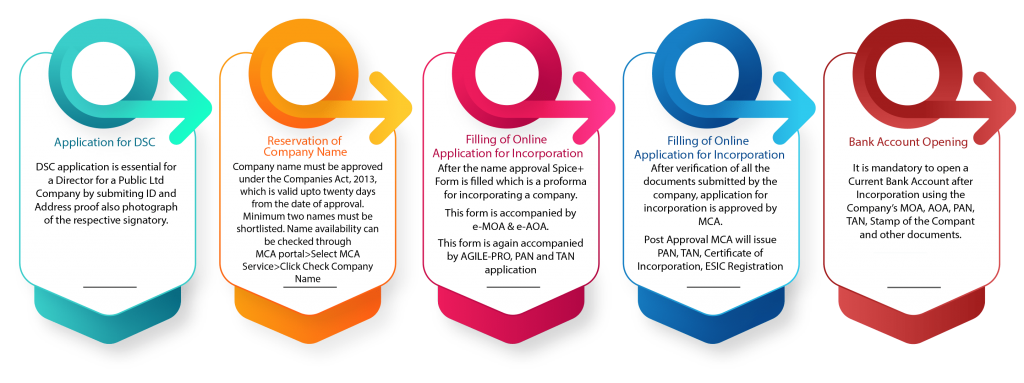Public Limited Company Registration
Meaning of Public Limited Company
The Public limited company is registered as per Companies Act, 2013 and rules made thereunder and it is a separate legal entity which can offers its shares to be traded on stock exchanges for public. Public Limited Company enjoy all the rights of a corporate entity with limited liabilities for its members and has rights to sell its shares for raising the capital of the company. However, it has to be differentiated from a private Limited Company. Public Company must have minimum number of three directors and seven members. Unlike Private Limited Company, there is no limit on maximum number of members of the Public Company.
As Compared to Private Limited Company, Public limited company has more stringent rules and regulations. On the other Part, a Public Limited Company has many advantages than private limited company and it is considered as better form of Business due to its features like easy transferability of shares and right of ownership and also raise fund from public by issuing shares through Initial Public Offer (IPO).
Public Limited Company is beneficial as the shares can be transferred easily, the Company have increased Borrowing Capacity, It’s a Separate Legal Entity, Shares can be listed in Stock Exchange.
Benefits of Public Limited Company
- High Credibility
- Easily transferable shares
- Limited Liability of Members
- Member’s liability is limited to the extent of amount unpaid on shares.
- The shareholder enjoy the rights of limited liability and such shares cannot be used to clear debt and losses of the Company and cannot be seized by any bank, Creditors or Government Bodies. However, shareholders are responsible for their own offences.
- Shares of the Public Limited Company can be listed on a Recognized Stock Exchange.
- Perpetual Succession which means death, retirement, insanity, and insolvency of one or more members/ shareholder/ directors, the company still continue its existence.
- It can issue equity, debentures and can accept the deposits from the general public by selling its shares.
- A Company can easily obtain funding from Banks and other financial institutions as Financial institutions find public companies more prominent than other unregistered companies.
- There is wider scope for growth and expansion of business as there is less scope of unsystematic risks of the market. Fewer risks lead to better opportunities so that the company can grow and expand by investing in new projects from the funds raised by selling its shares in the market.
Difference between the Public limited Company and Private Limited Company

Eligibility Criteria for Public Limited Company Registration
- Directors: Minimum three Directors are required and one must be a resident of India.
- Shareholders: Minimum Seven Members are required who can become directors or shareholders or both.
- Unique Name: The Company shall have a unique name which shall not be similar to the existing company registered in India and the name shall not similar to any registered or applied trademark in India. All the Public limited companies must add “Limited” word at the end of their name. it is denoted as an identity of a public company.
- Capital Requirement: As per the requirements of the act, no minimum capital required for the registration. However, the Public Company shall have minimum Authorised share capital of 5 Lakhs.
Documents required for registration of Public Limited Company

Process of Public Limited Company Registration in India

Application for DSC
The DSC of the director is require to file the online application form for a public limited company.
DSC can be taken by submitting a DSC application attached with identity proof, address proof, photographs of the respective signatory.
Reservation of Company Name
The company needs to get the company name approved under the Companies Act, 2013, which is valid up to twenty days from the date of approval. A company can propose for two names
You can check the name availability through the MCA portal by following this step
Visit the MCA Portal> select the MCA services> Click Check Company Name
Filling of online application for Incorporation
After Name Approval, Application for incorporation of Company shall be made in Spice+ Form (INC-32). This is a simplified proforma for incorporating a company. This form is accompanied by e-MOA(Memorandum of Association), e-AOA(Article of Association). These two documents contain the details of the mission, objectives, aims, visions, business activities, responsibilities of all the directors and shareholders and definition of the proposed company. This form is also accompanied by AGILE-Pro (Details for registration under EPFO & ESIC/ GST / Bank account Opening), PAN and TAN Application.
Approval of application for Incorporation
Upon verification of documents submitted by the Company, Application for Incorporation of the Company is approved by Ministry of Corporate Affairs. Post approval Ministry of Corporate Affairs will issue PAN, TAN, Certificate of Incorporation, ESIC Registration.
Bank Account Opening
After Incorporation, it is Compulsory to open a Current Bank account with any bank by submitting the certificate of incorporation, MOA & AOA, PAN and TAN of the Company, Stamp of the company and other required documents.
Document you will get After Registration of your Public Limited Company

FAQs
Some of the compliances which must be adhered by a Public limited company are:
- Auditor Appointment.
- Bank Account Opening
- Commencement of Business
- Convene AGM.
- Income Tax Return filing.
- Filing of Annual Return and financial statements etc.




